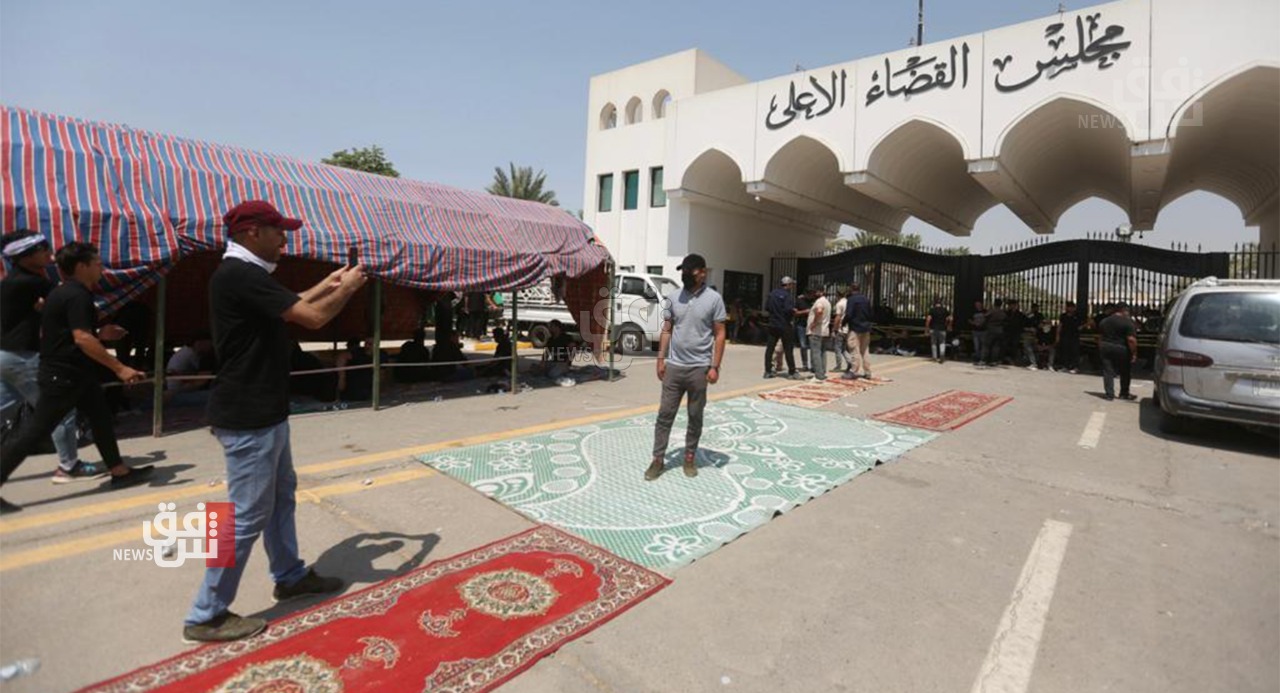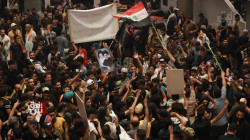Al-Sadr's advisor calls protestors to withdraw from the Judiciary

Shafaq News / Saleh Mohammad al-Iraqi, who runs a Twitter account named "the leader's advisor" and is widely believed to be Muqtada al-Sadr's mouthpiece, advised the protesters to withdraw from the building of the Supreme Judicial Council in the capital, Baghdad.
The self-proclaimed advisor of Muqtada al-Sadr said on Twitter that in the Judiciary in Iraq, many people support reform, and "if there are problems, it is because of the political pressure from the corrupts against them."
Al-Iraqi urged the supporters "to keep tents erected and continue sitting in front of the parliament building.
Earlier today, Supporters of the Sadrist movement protested in front of the Supreme Judicial council.
The demonstrators called for meeting the demands of the influential Shiite leader Muqtada al-Sadr, including dissolving the Parliament to hold an early parliamentary election.
Iraq's Judiciary suspended its activities on Tuesday as loyalists of al-Sadr pressured it to dissolve Parliament in one of the worst political crises since the U.S.-led invasion dragged on.
Al-Sadr's followers gathered for protests outside the headquarters of the Supreme Judicial Council and Federal Supreme Court in Baghdad. The followers have sent threats by phone, the Judiciary said in a statement.
Al-Sadr, who fought U.S. troops and became a kingmaker in Iraqi politics, has called for early elections and unspecified constitutional changes after withdrawing his lawmakers from Parliament in June.
His political opponents, mostly fellow Shiites backed by Iran, have refused to accede to his demands, raising fears of fresh unrest and violence in a conflict-weary Iraq.
Iraq's 10-month standoff since the election is the longest stretch without a fully functioning government in the nearly two decades since Saddam Hussein was overthrown in a U.S.-led in 2003.
Al-Sadr was the biggest winner of last year's election but could not form a majoritarian government along with Kurdish and Sunni Muslim Arab parties, excluding his Iran-backed Shiite rivals
